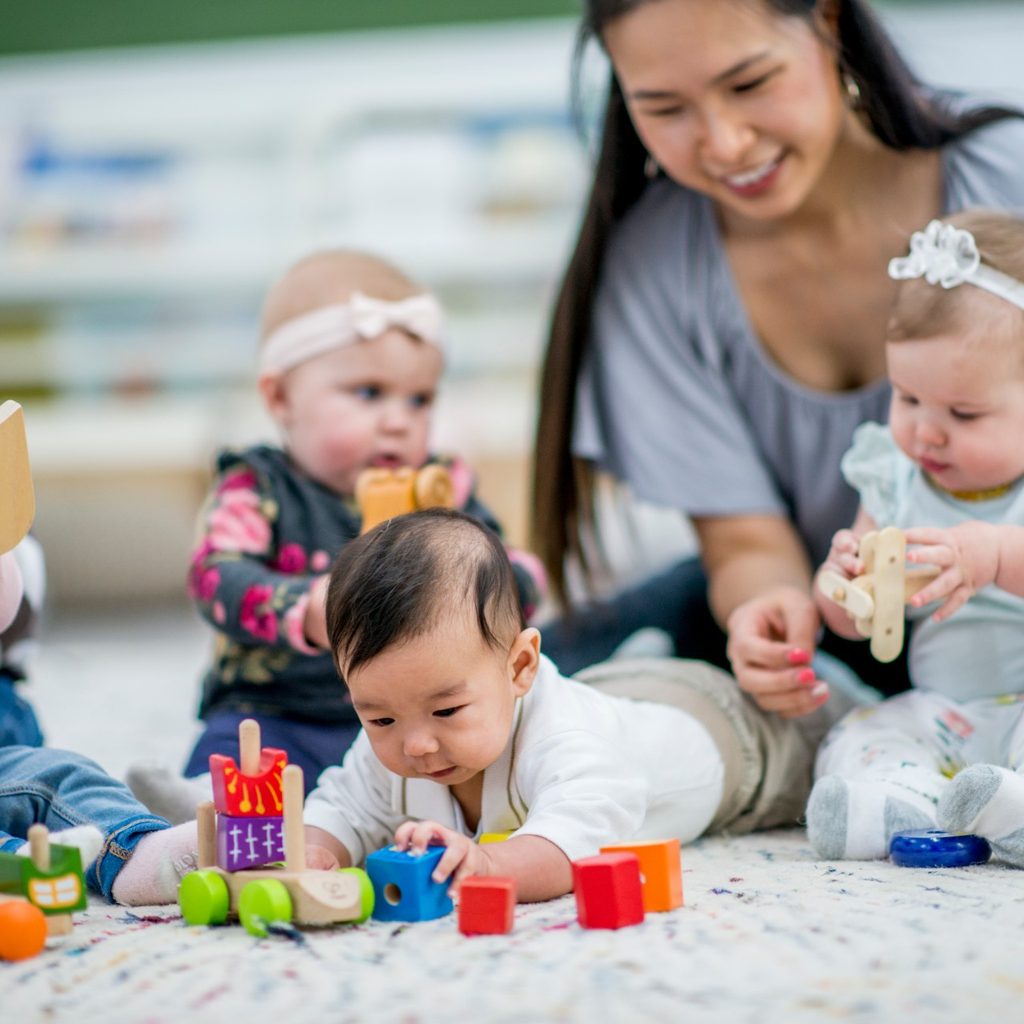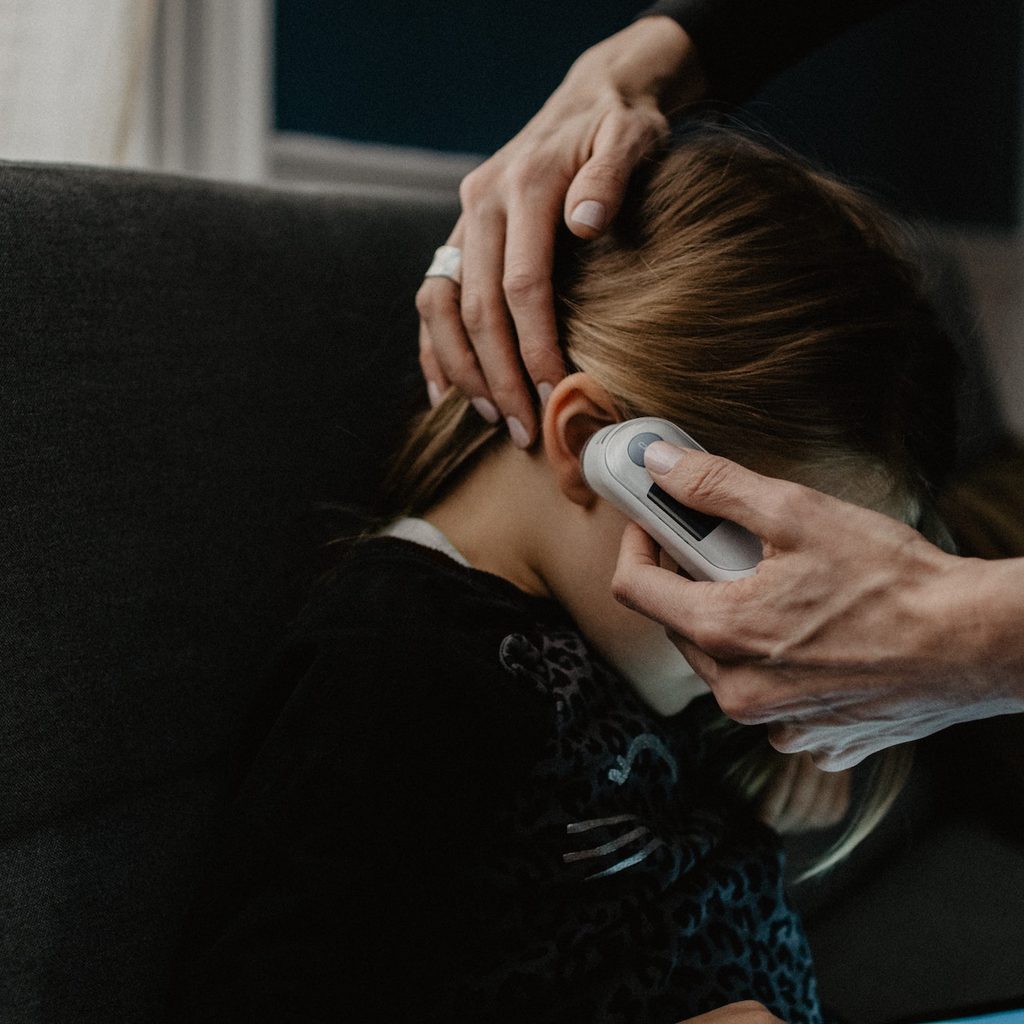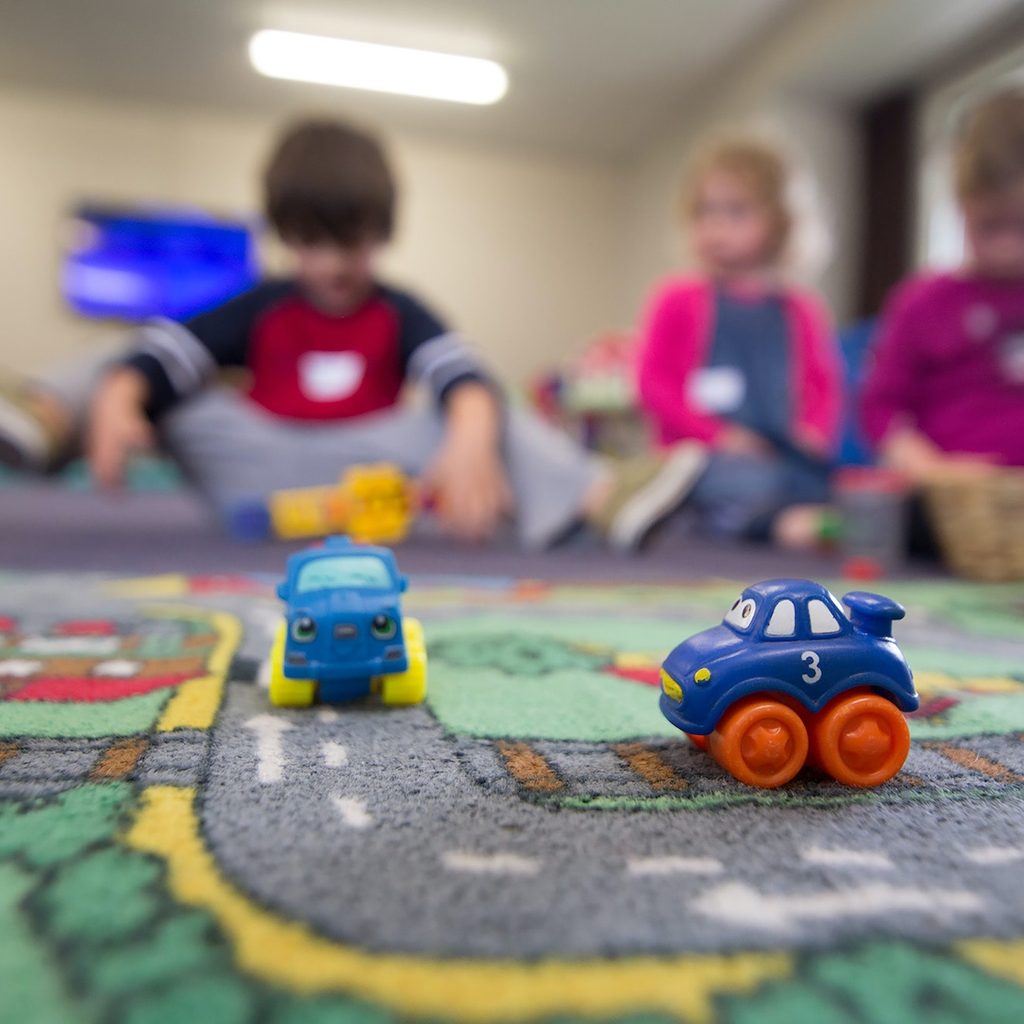Sending your child to day care for the first time is challenging for new parents. The right day care center is a place where your child feels loved and where caregivers are a good match for your parenting style. Finding the best day care for your young child is all about asking the right questions. We’ve put together a list of six essential day care interview questions that’ll help you get a better sense of the center’s policies, routines, setup, and experience. Whether you’re considering a day care center or a family day care, these questions are a great starting point for you to find your little one’s home away from home.

Is the center licensed?
First and foremost, you need to make sure your child’s day care is licensed. For your peace of mind, make sure that your day care provider has a current state license or registration. Caregivers at licensed day care centers must pass a comprehensive criminal background check for the safety of the children who attend. Licensing also means that centers comply with regulations (such as a home inspection) and that your provider has a high school or higher education diploma.
Once you’ve confirmed that the day care is licensed, these are some good follow-up questions to ask the caregiver or director:
- Do caregivers have first-aid training?
- Does the day care run background checks on caregivers?
- Are caregivers trained in child development?
What does a typical day look like?
A good day care center has a well-established schedule that the children follow. This daily routine should provide a balance between outdoor time, educational activities, and creative opportunities. It’s also important for young kids to get enough rest during the day to make sure they stay healthy and happy.
For a clear idea of how your child’s day will go, don’t be shy to ask for a complete breakdown of the schedule. Knowing what time the children eat, nap, and play helps you plan your evening routine at home. This is especially useful when your child is very young and doesn’t speak much yet.
Here are a few more questions for you to ask the day care center as you’re going over the schedule together:
- How do caregivers help the children establish a routine?
- Can parents drop off early or pick up late sometimes?
- What meals and supplies do parents need to supply?
How many children does the day care serve?
Toddlers need dedicated caregivers to avoid accidents and help them thrive. They also need plenty of space to run around and stay active. When you interview your day care provider, always make sure that they’re able to give your little one the necessary attention to keep them safe.
Aside from knowing how many kids attend the center, these are some extra due diligence questions for you to ask:
- What is the ratio of caregivers to children?
- How large is the center?
- What are the children’s ages?
What is your experience with child care?
A good day care provider has experience with young children. It’s only with years of practice that caregivers learn how to handle all sorts of situations and feel comfortable raising kids. If your baby is still in diapers, confirm that the caregiver can balance the number of kids they have and that they’re open to helping you with potty training.
References are invaluable when choosing a day care center. Call your caregiver’s references and ask them straightforward questions. Remember, they’re also parents who understand what you’re going through.
If you’re considering multiple centers, look for online reviews and read them thoroughly. These will allow you to compare and contrast. Once you’ve done your research, you’ll be able to make a better decision.
For more in-depth information on your child’s potential caretaker, ask the following questions:
- Why did you decide to work in early childhood education?
- How do you discipline kids?
- How long have you been providing care?
How do you handle illness?

Keeping your child healthy is a shared responsibility between parents and day care providers. Healthy habits and open communication are basic to keep all the children at the day care safe. Find out your center’s illness policies and ask these follow-up questions:
- What are your hand-washing and hygiene practices?
- What is your policy regarding illness or symptoms?
- What happens if you get sick?
How do you communicate with parents?
Since your child is young, they can’t tell you much about their day-to-day experience at the day care center. It’s up to the provider to keep you in the loop of your child’s day. A good day care center lets you know if your child napped, how well they ate, or if they had any accidents. For more details on parent-provider communication, ask the following:
- Do you take notes on the children’s day?
- Can I call you in the middle of the day to check in on my child?
- How often do you hold conferences with parents?
Gut feeling is essential when choosing a day care center for your little one. This list of questions to ask day care centers is just the beginning of your conversation. When choosing a caretaker, take a cue from your child’s body language and your own sense of comfort. Once you’ve found a day care that feels right, start with a test period and keep open communication with the caretaker to help you and your child with the transition.



